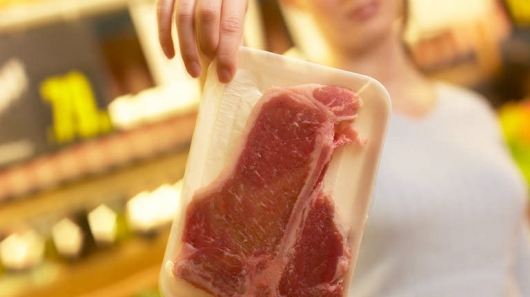Scientists grow meat in a lab for the first time
By Paul Lester
18:13 November 30, 2009 PST
Four years ago, a paper from the Tissue Engineering journal outlined techniques that would allow large-scale meat production in a lab. Today we can view the fruits of their research, as scientists now confirm that they have managed to grow a form of meat in a laboratory for the first time.
Researchers from The Netherlands extracted myoblast cells from the muscle of a live pig; cells that in the right environment would grow into muscle in order to repair damage to tissue, and incubated them in a nutrient-based solution derived from the blood of animal foetuses. The result was what has been described as “a soggy form of pork” which, due to laboratory rules hasn’t been sampled for taste yet. Sufficient “exercising” of said product could however yield a tougher, steak-like consistency.
Professor of physiology at Eindhoven University Mark Post, lead scientist of the government-funded research, said “You could take the meat from one animal and create the volume of meat previously provided by a million animals. We need to find ways of improving it by training it and stretching it, but we will get there. This product will be good for the environment and will reduce animal suffering. If it feels and tastes like meat, people will buy it.”
Aside from the obvious benefits of more effective global meat and dairy production, consumption of which is set to double by 2050, the moral benefits have been acknowledged by vegetarians who agree that they have no ethical objection to the procedure, though some still query its potential. A Vegetarian Society spokesperson argues “The big question is how could you guarantee you were eating artificial flesh rather than flesh from an animal that had been slaughtered. It would be very difficult to label and identify in a way that people would trust.”
In addition, the ability to produce meat in a laboratory would yield environmental benefits. With 18% of the world’s greenhouse gases produced by livestock, any reduction would have a significant impact on our collective carbon footprint.
copyright © gizmag 2003 - 2009 To subscribe or visit go to: http://www.gizmag.com
